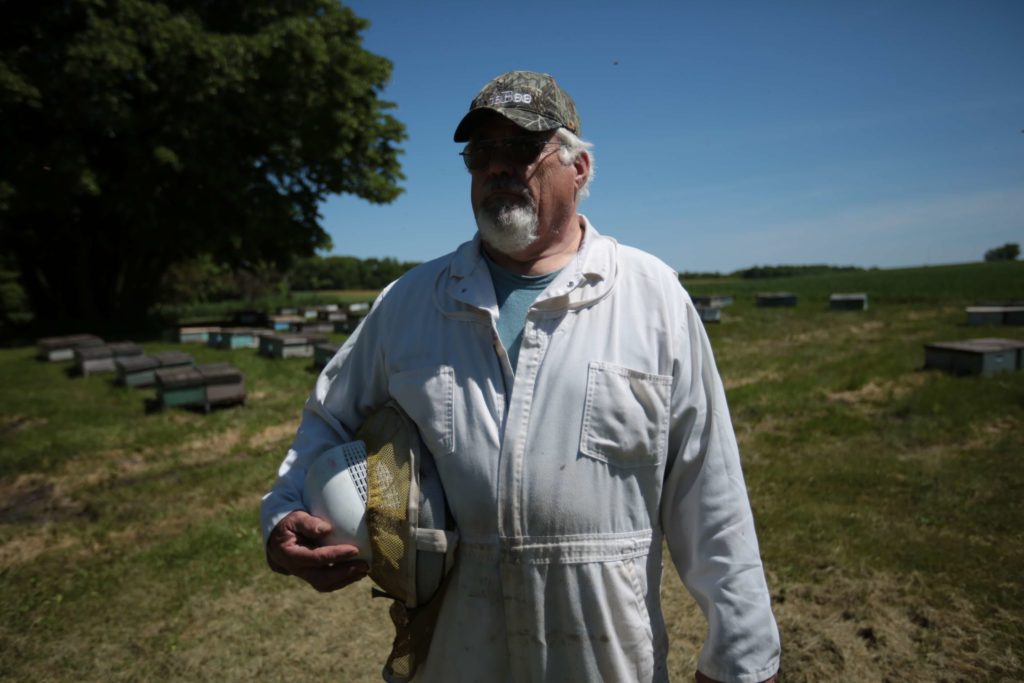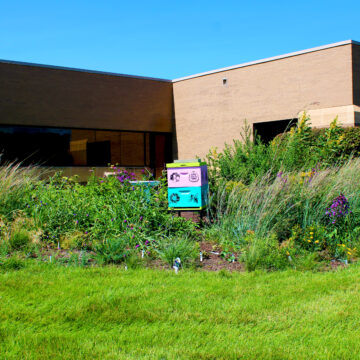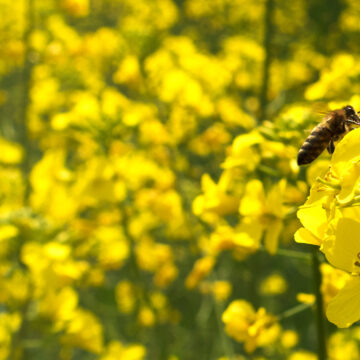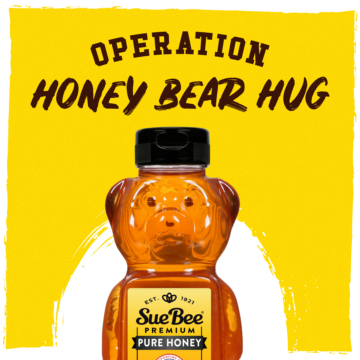Bee Whisperer
The hive that started it all
Darrel Rufer was a seasoned chef at a fine-dining restaurant in Minneapolis when a bevy of bees changed his life forever. It was 1977, and he had just finished the midday lunch rush.
“I walked out of the restaurant and there was a swarm of bees hanging in the tree outside,” he says. “I put my motorcycle helmet on, put my t-shirt up over my face, shook the bees into a box and strapped them to the back of my motorcycle, and I took them home.”
Next stop, a nearby department store.
“Back then, you could buy bee equipment at Montgomery Ward, so I drove to St. Paul, went to Montgomery Ward, got the bee equipment and came home. That was my first year in beekeeping. I didn’t expect it. I wasn’t looking for it. It went from a hobby to commercial beekeeping in less than a year.”
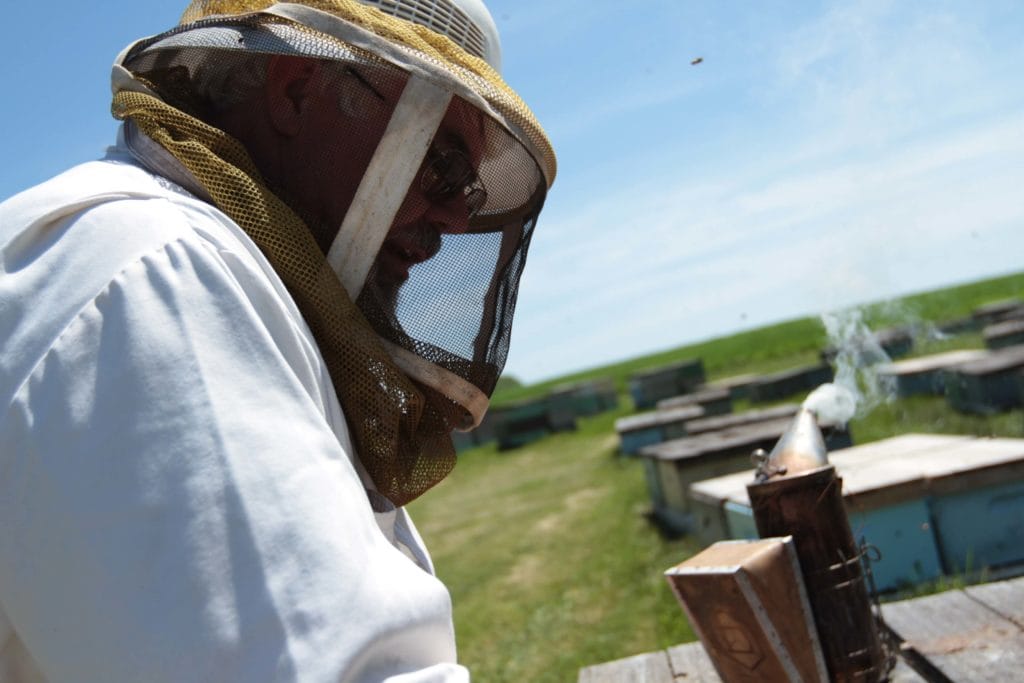
Today, Rufer’s Apiaries, Inc., is a thriving member of the Sioux Honey Association Co-op, with thousands of colonies of honeybees in Minnesota and South Dakota. Darrel and Cathy have been named Beekeepers of the Year by the Minnesota Honey Producers Association, as well as served on the association’s board. And now “Big Dog,” as Darrel is known, has not one but four motorcycles!
“This business was not built just by me,” Darrel says. “It was built by my family. It was built by my brother, my sons, my wife, different employees over the years. Nothing is done just by yourself.
“It’s like the bees – these bees don’t belong to me; I’m just here taking care of them. I would imagine that there are a lot of people in agriculture who have the same feelings … that what they’re doing is shepherding their flock. And it just so happens my flock is honeybees, and I have to take care of them.”
Joining the Sioux Honey co-op
For the first 25 years of beekeeping, Darrel was an independent beekeeper. But in 2003, he decided to join the Sioux Honey co-op.
“The decision to join Sioux Honey was the biggest decision I’ve had to make in the honey business,” says Darrel. My dad had worked for operations that were Sioux, and I knew them. And so my wife and I decided we wanted to go with Sioux Honey.
“Now I would never go back. I’m very proud to be a Sioux Honey producer. It’s produced by American beekeepers, American families, generations of families who produce a high-quality product. Sue Bee is synonymous with quality and with values – high values – and so it’s been a privilege and a pleasure to be a Sioux Honey member. I’m more than happy. And if you can make me happy, then you’re doing a pretty darn good job.”

In Minnesota, the Rufers produce what is called a poly-floral, multi-floral honey. “It can be alfalfa, clover, some sweet clover – the best,” Darrel says.
In South Dakota, most of the honey is sweet clover. “South Dakota clover honey is like … well, it’s unbelievable.”
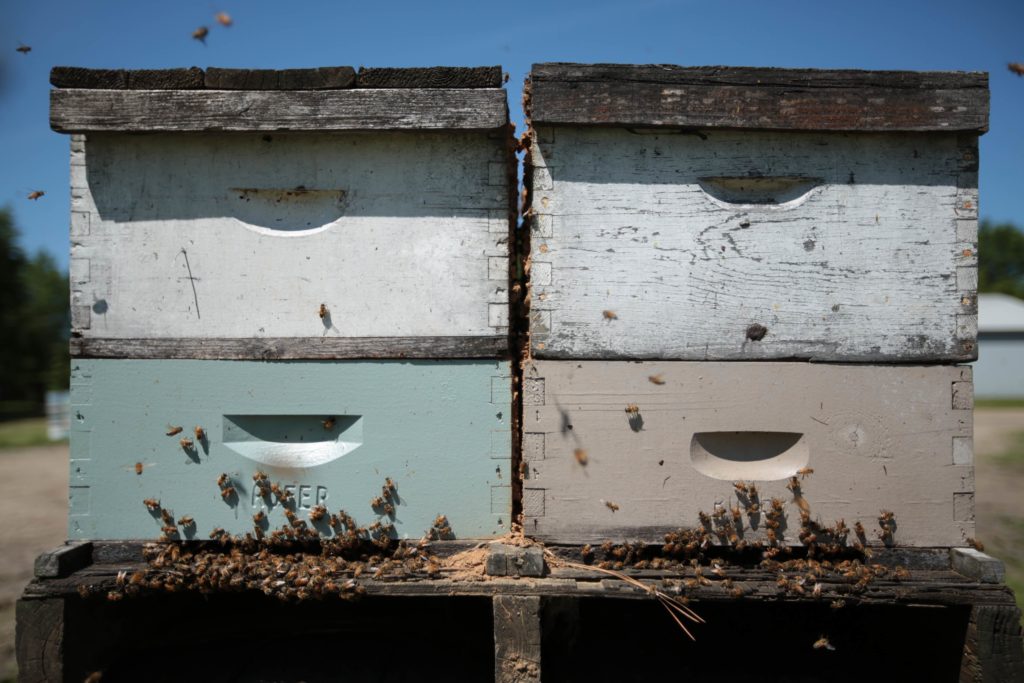
A successful business plan
“I had this dream about creating this beekeeping business and my dream was realized … and I recently asked Cathy what her dream was … I’m going to get weepy. Even though I’m the Big Dog, I got a big heart. And she said, ‘Your dream became my dream.’”
Cathy has assisted with accounting over the years for Rufer’s Apiaries, and Darrel’s brother, Terry, worked for him for 25 years before recently retiring. Now Darrel’s son, Jason, is being groomed to take over the business after trying his hand at other professions.
Jason helped with beekeeping on his family’s apiary in high school but chose automotive school after graduating and spent several years working in the automotive industry. Darrel says that Jason approached him a few years ago about returning to the family business.
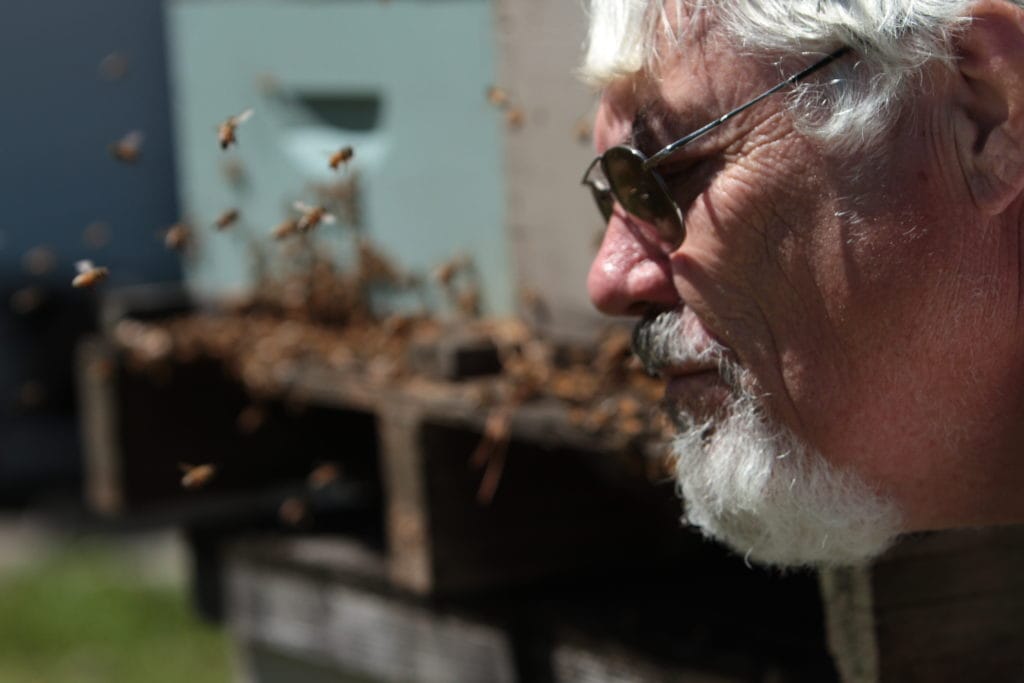
Over the course of a motorcycle trek through Montana and South Dakota, Darrel and Jason talked about the honeybee business during stops along the ride. Darrel’s most important question to Jason was: Are you ready to commit to being a beekeeper?
“Beekeeping is a hard job,” says Darrel. “There are no days off. When it’s time to work, you have to work. You have to take care of the bees, you have to have a lot of drive to keep your bees alive, otherwise the bees will not be able to take care of you.
“I know a lot of Sioux Honey members, and they’re all the same. It’s not about seeing how much money you can make, or how fast. Beekeeping is not big agriculture. Beekeeping is big families. A lot of brothers, sons, dads, grandfathers. That’s why it’s a generational thing. It’s a lifestyle.”
